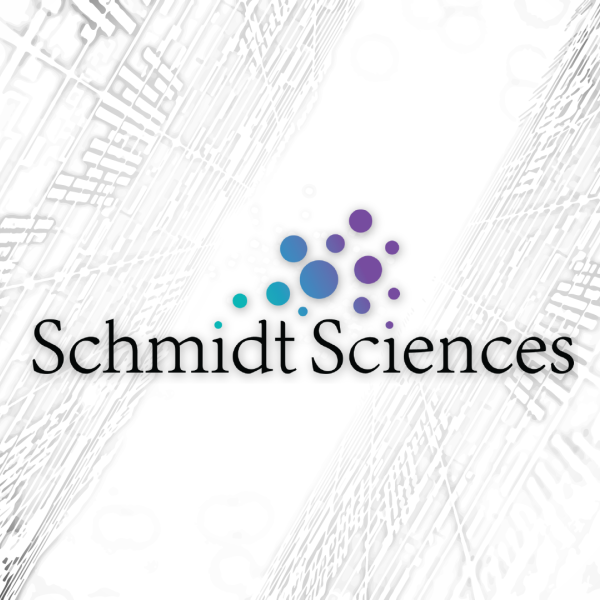November 7, 2024
By Louis DiPietro
Nanoparticles that could change material science. Better models to predict the potential for global carbon offsets. More efficient and cheaper solar panels. These are some of the research projects from 12 of the newest Eric and Wendy Schmidt AI in Science Postdoctoral Fellows from Cornell.
“While varying in expertise, each fellow shares a common research vision – to leverage artificial intelligence (AI) in their respective fields of science to further discovery and make an impact,” said Carla Gomes, the Ronald C. and Antonia V. Nielsen Professor in Cornell Bowers CIS and co-director of the Cornell University AI for Science Institute (CUAISci), which works in tandem with the fellowship program to recruit and train awardees from Cornell. “We’re excited to welcome this latest cohort of exceptional scholars.”
The dozen fellows represent the third annual cohort from the six-year Eric and Wendy Schmidt AI in Science Postdoctoral Fellows program, which invited Cornell to join in 2022. The $148 million program – part of a larger $400 million effort from Schmidt Sciences – supports researchers using AI to further discovery in science, technology, engineering, and mathematics. To date, 35 scholars from Cornell have received fellowships through the Eric and Wendy Schmidt AI in Science Postdoctoral Fellows program.
“We are delighted to introduce our third cohort of Schmidt AI in Science Postdoctoral Fellows. These exceptional researchers are expanding the frontiers of what AI can accomplish in scientific discovery,” said Fengqi You, the Roxanne E. and Michael J. Zak Professor in Energy Systems Engineering and co-director of CUAISci. “From leveraging nanoparticles to revolutionize material sciences to refining predictive models for climate dynamics and carbon offsetting, and advancing our understanding of solar energy, their work is poised to address critical scientific challenges in sustainability and physical sciences and beyond.”
This year’s cohort of Schmidt AI in Science Postdoctoral Fellows are:
Akshay Ajagekar, Cornell Engineering, uses quantum computing-enhanced generative deep learning for chemical and biomolecular design in areas of drug discovery and synthetic biology.
Guangyao Chen, Cornell Engineering, uses AI technology to determine the best manufacturing conditions for nanoparticle materials and accelerate the discovery of materials.
Weiwei Chen, College of Arts and Sciences, analyzes how the brain learns from past experiences, with the goal to develop an AI model to understand how mental predictive coding and replay interact to support fast adaptation in the brain.
Kwanghwi Je, Arts and Sciences, combines nano imaging, machine learning, and simulations to understand the structure of nanoparticles.
Hyung-Sub Kim, Cornell CALS, leverages AI to project carbon storage potential of the global forests in a changing world.
Jason Kim, Arts and Sciences, develops generative AI for interpretable dimensionality reduction with gene sequencing technology to better model cancer development, and with calcium imaging technology to model spatial representation in the hippocampus.
Myungjoon Kim, Cornell Engineering, explores nonlinear multimode optical systems and develops photonic devices with enhanced or novel functionality, leveraging physics-informed machine learning.
Yasir Latif, Cornell CALS, develops a "climate emulator" to improve hydroclimatic projections using AI and output from state-of-the-art high-resolution climate models for uncertainty reduction in hydro-climatic predictions.
Xueyu Tian, Cornell Engineering, harnesses AI to determine the viability of perovskite solar cells (PSCs) – a high-efficiency, lightweight, and flexible solar cell – for use in agrivoltaics, which is the dual use of land for solar energy and farming.
Zhilong Wang, Cornell Engineering, leverages AI and first-principles calculations to develop high-performance energy and electronic materials.
Zherong Wu, Cornell CALS, develops deep-learning frameworks to reduce huge uncertainties of global terrestrial carbon flux – and in turn, produce more reliable climate projections to support policymaking.
Yue Zhuo, Cornell Engineering, develops AI-powered “multimodal plant agents” for examining plant genotypes, phenotypes, pathology, and processes to combat agricultural and economical challenges due to climate change.
Louis DiPietro is a writer for the Cornell Ann S. Bowers College of Computing and Information Science.



